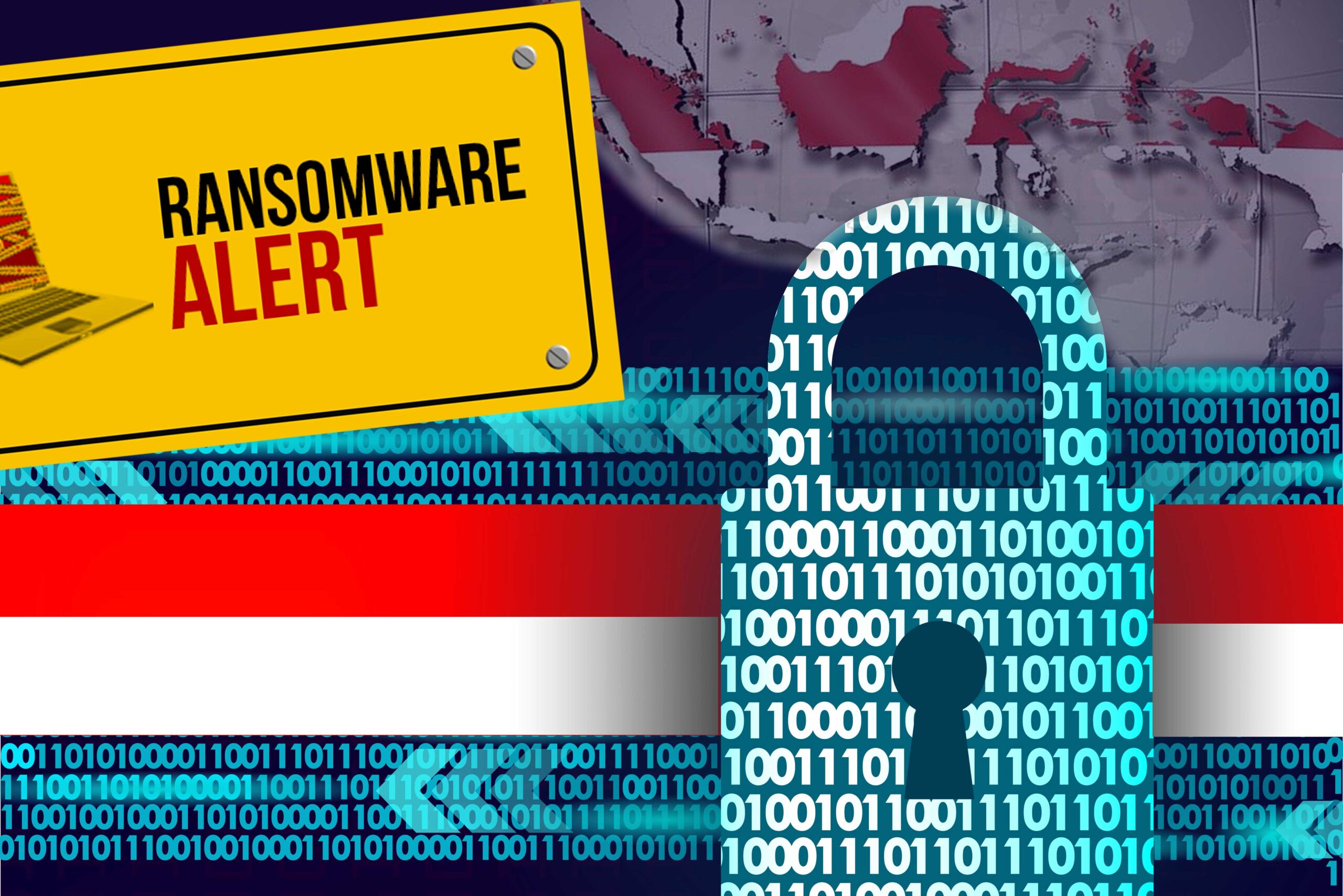LockBit Ransomware Attack Shakes
Indonesia's Geopolitics

By: Prof. Dr. Drs. Ermaya Suradinata, S.H., M.H., M.Si.
Editor: Dhania Puspa Purbasari
Recently, there has been news shaking the nation, with a ransomware attack on the National Data Center in Indonesia. This attack, carried out by the LockBit hacker group, is not only a technical and cybersecurity issue but also has significant implications for Indonesia’s geopolitics and geostrategy. LockBit, known as one of the most sophisticated ransomware gangs in the world, uses a Ransomware-as-a-Service (RaaS) model, where ransomware software is provided to affiliates who conduct the attacks. In this case, the BrainChipper variant used shows very strong encryption capabilities, making data inaccessible without the decryption key held by the hackers.
This incident impacts not only data security but also national stability and Indonesia’s strategic position on the international stage. Moreover, the ransomware attack modus operandi often involves phishing attempts or exploiting vulnerabilities in existing security systems. Once access is gained, hackers install ransomware that encrypts critical data. The attack on the National Data Center involving 282 government ministries/agencies (KL) data has broad impacts.
Disruptions to public services due to the loss of access to crucial data can hinder government functions and reduce bureaucratic efficiency. Furthermore, the nation is shocked that the ransom demand of US$ 8 million (Rp 131 billion) reflects significant potential economic losses if the ransom is paid. Beyond that, this attack can erode public trust in the government’s ability to protect sensitive data, which is one of the main pillars of public confidence in state institutions.
From a geopolitical and geostrategic perspective, the attack on the National Data Center can be considered a serious threat to Indonesia’s national stability and security. The National Data Center is a crucial hub storing strategic information on national policies, operations, and strategies. The data stored in the National Data Center encompasses everything from political decisions to military plans, making it a prime target for those seeking to disrupt national security.
When the National Data Center is threatened, the risks to Indonesia’s national security increase significantly. Information obtained from an attack on the National Data Center can be used to disrupt government operations, influence public policy, or even destabilize social stability. Such threats are not only local but also have global implications, as leaked information can be exploited for strategic purposes at the international level.
The attack on the National Data Center can be exploited by foreign countries or entities to test and expose vulnerabilities in Indonesia’s security systems. Foreign parties can use this cyberattack as an opportunity to assess the Indonesian government’s response to cyber threats and gather intelligence related to the country’s cyber defense capabilities.
The impact of the attack on the National Data Center is not limited to national security aspects but also has the potential to influence Indonesia’s bargaining position in a geopolitical context. The government’s response to the cyberattack will be under international scrutiny and can affect Indonesia’s bilateral and multilateral relationships with other countries. The reliability of the cybersecurity system also becomes a critical factor in determining international trust in Indonesia’s role in the region and globally.
Indonesia, with its strategic location on international trade routes and its important role in Southeast Asian stability, faces significant challenges regarding cybersecurity. Attacks on the country’s digital infrastructure can undermine not only national security but also regional stability as a whole. Southeast Asian countries are interconnected through increasingly vital digital networks, so threats to one country can quickly spread to others, threatening close regional cooperation.
Indonesia’s geostrategy, which includes its important role in the global economy and regional diplomacy, makes it an attractive target for those seeking to disrupt regional stability. Attacks on digital infrastructure, including the National Data Center, not only cause economic and operational losses but can also be used as tools to influence political and security dynamics in Southeast Asia.
Therefore, cyber defense is not just a national issue but also a priority within the broader framework of regional security. In the context of international cooperation, attacks on Indonesia’s digital infrastructure have far-reaching implications. Vulnerability to cyberattacks can reduce inter-state trust and hinder joint efforts to address global cybersecurity threats.
Collaborative efforts in cyber intelligence sharing and cybersecurity technology development become increasingly important to protect critical infrastructure and strengthen regional cyber resilience. The Indonesian government must also adopt a comprehensive strategy to face increasingly complex cybersecurity threats.
This includes strengthening an effective regulatory framework, enhancing cyber defense capabilities, and building awareness and skills in the community to counter cyberattacks. By doing so, Indonesia not only protects national interests but also plays an active role in maintaining regional stability and international cooperation in cybersecurity.
Based on the analysis of the attack on Indonesia’s digital infrastructure from a geostrategic perspective and its implications for regional security and international cooperation in cybersecurity, it can be concluded that this challenge requires a comprehensive and coordinated response.
Indonesia, as a country with an important role in regional and global geopolitics, must increase its capacity in cyber defense, strengthen an effective regulatory framework, and promote international cooperation in facing increasingly complex cyber threats. Concurrently, awareness of the importance of cybersecurity needs to be heightened at all levels, including within civil society, the business sector, and the government.
Education on digital security practices and investment in cybersecurity technology becomes crucial in building robust cyber resilience. By doing so, Indonesia can protect not only national and regional interests but also play a proactive role in maintaining stability and security in an increasingly digitally interconnected geopolitical context.
Prof. Dr. Drs. Ermaya Suradinata, S.H., M.H., M.Si. was Governor of Lemhannas RI (2001-2005) and Director General of Socio-Politics of the Ministry of Home Affairs (1998-2000). He is currently Chairman of the Board of Trustees of the Center for Geopolitics & Geostrategy Studies Indonesia (CGSI), Chairman of the Expert Council Team of the Indonesian Pancasila Ideology Development Agency (BPIP).
